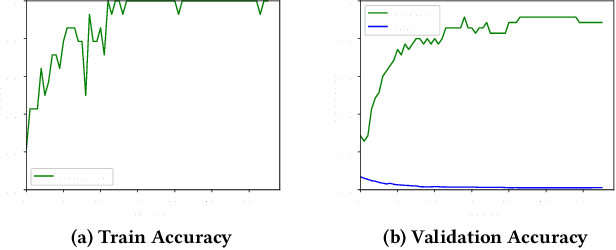Split Federated Learning on Micro-controllers: A Keyword Spotting Showcase
Paper and Code
Oct 04, 2022



Nowadays, AI companies improve service quality by aggressively collecting users' data generated by edge devices, which jeopardizes data privacy. To prevent this, Federated Learning is proposed as a private learning scheme, using which users can locally train the model without collecting users' raw data to servers. However, for machine-learning applications on edge devices that have hard memory constraints, implementing a large model using FL is infeasible. To meet the memory requirement, a recent collaborative learning scheme named split federal learning is a potential solution since it keeps a small model on the device and keeps the rest of the model on the server. In this work, we implement a simply SFL framework on the Arduino board and verify its correctness on the Chinese digits audio dataset for keyword spotting application with over 90% accuracy. Furthermore, on the English digits audio dataset, our SFL implementation achieves 13.89% higher accuracy compared to a state-of-the-art FL implementation.
 Add to Chrome
Add to Chrome Add to Firefox
Add to Firefox Add to Edge
Add to Edge